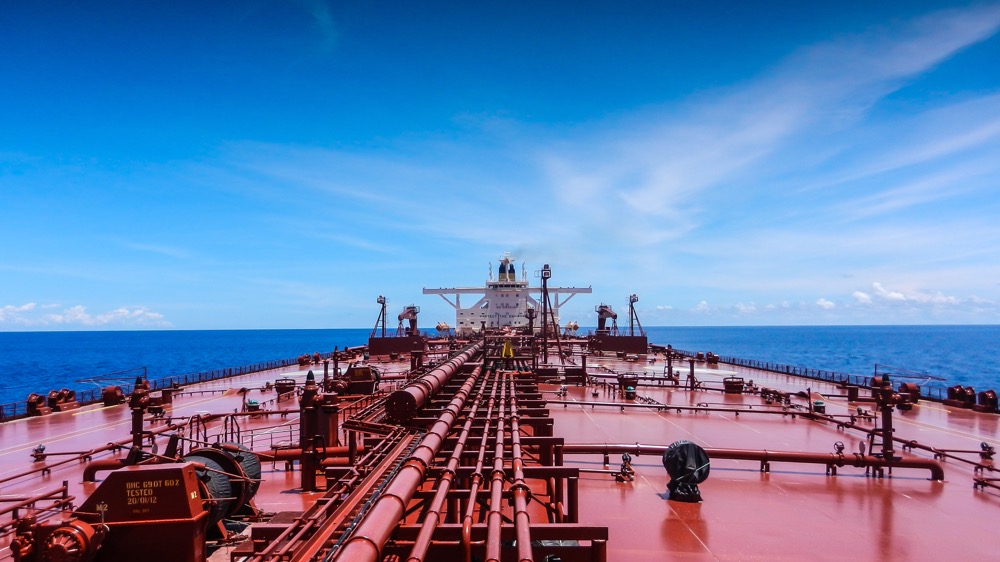Some of the biggest names in chartering have vowed to make the details of their shipping carbon footprint public, which could germinate an enormous revolution in sea transportation.
International non-profit organization, Global Maritime Forum, announced today that a group of the world’s largest energy, agriculture, mining, and commodity trading companies will for the first time assess and disclose the climate alignment of their shipping activities.
The Sea Cargo Charter «sets a new benchmark for responsible shipping, transparent climate reporting, and improved decision-making in line with United Nations decarbonization targets » according to a release from the Global Maritime Forum.
The Charter establishes a common baseline to quantitatively assess and disclose whether shipping activities are aligned with adopted climate goals. The Sea Cargo Charter is consistent with the policies and ambitions adopted by member states of the International Maritime Organization (IMO), a specialized agency of the United Nations responsible for regulating shipping. This includes its ambition for greenhouse gas emissions from international shipping to peak as soon as possible and to reduce shipping’s total annual greenhouse gas emissions by at least 50% of 2008 levels by 2050, with a strong emphasis on zero emissions.
“A standard greenhouse gas emissions reporting process will simplify some of the complexities often associated with reporting. It will encourage a more transparent and consistent approach to tracking emissions, which will be a critical part of making shipping more sustainable,” says Jan Dieleman, President, Cargill Ocean Transportation and Chair of the Sea Cargo Charter drafting group.
“The shipping industry as a whole needs to adopt a transparent approach, advocated by the Sea Cargo Charter, in order to fully understand the sector’s overall greenhouse gas footprint and for us to collectively rise to the challenges faced,” says Rasmus Bach Nielsen, Global Head Fuel Decarbonization, Tragura.
“The Sea Cargo Charter is an important step in laying the foundations for a net-zero emissions shipping industry. Collaboration such as this, from across the sector, is vital to scale-up customer demand for low- or zero- emissions shipping. This same spirit of collaboration is also vital in the pursuit of the technological advances needed to unlock decarbonization solutions, and in building industry support for regulation which can create an ambitious but level-playing field under which to invest. Building on this momentum, we would like the IMO to use its 2023 strategy review to set the trajectory for the sector to move to net-zero emissions by 2050,” says Grahaeme Henderson, Global Head, Shell Shipping & Maritime.
The 16 Founding Signatories of the Sea Cargo Charter include Anglo American, ADM, Bunge, Cargill Ocean Transportation, COFCO International, Dow, Equinor, Gunvor Group, Klaveness Combination Carriers, Louis Dreyfus Company, Norden, Occidental, Shell, Torvald Klaveness, Trafigura, and Ørsted. All other responsible shippers are invited to join the initiative.
“The Sea Cargo Charter enables leaders from diverse industry sectors to use their influence to drive change and promote shipping’s green transition by choosing maritime transport that is aligned with agreed climate targets over that which is not,” says Johannah Christensen, Managing Director, Head of Projects & Programmes at international non-profit, Global Maritime Forum.
The Sea Cargo Charter is intended to evolve over time as the IMO adjusts its policies and regulations and when further adverse environmental and social impacts are identified for inclusion. They also aim to support other initiatives developed to address climate, environmental, and social risks in shipping, such as the Poseidon Principles1.
The Charter is applicable to bulk charterers with interest in the cargo on board; those who simply charter out the vessels they charter in; as well as the deponent owners and all charterers in a charterparty chain. They apply globally, to all chartering activities where a vessel or vessels fall under the purview of the IMO.
“The hard part of decarbonization is not the technical aspects, but the behaviour change required to centuries-old ways of working. The Sea Cargo Charter is fundamental to ensuring better data is reported in a consistent way – to enable, for the first time, the charterer’s significant climate risks and opportunities to be managed” pertinently says Jean-Marc Bonello, Consultant, UMAS .
1.The Poseidon Principles establish a framework for assessing and disclosing the climate alignment of ship finance portfolios. They set a benchmark for what it means to be a responsible bank in the maritime sector and provide actionable guidance on how to achieve this.
We are delighted to announce the #SeaCargoCharter which sets a new benchmark for responsible shipping, transparent climate reporting, and improved decision making in line with agreed climate targets. Visit https://t.co/GP5W8so5zQ to learn more. pic.twitter.com/fQ1hBA4Wu8
— Sea Cargo Charter (@seacargocharter) October 6, 2020


